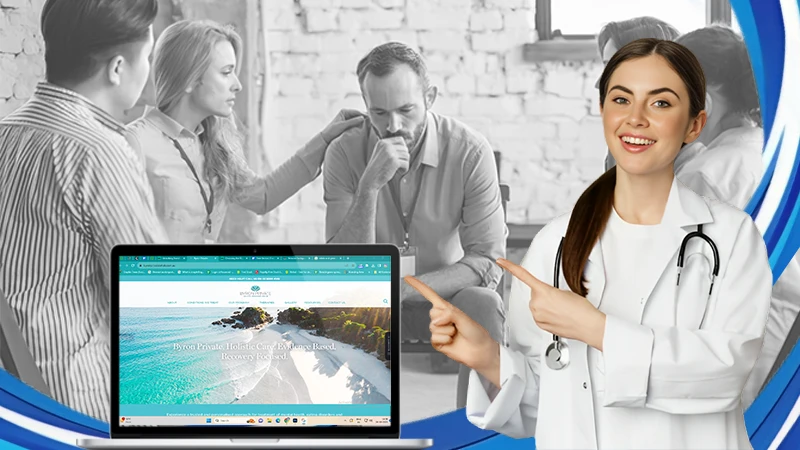How to Conduct a Nursing Head-to-Toe Assessment?
As a newly minted graduate in the nursing profession, one has to be well aware that a head-to-toe assessment is a fundamental and indispensable skill. With the comprehensive training and education received, a nurse is fully prepared and eager to perform a thorough head-to-toe assessment. This essential practice involves systematically examining each body system, from the head down to the toes, to gather valuable information about a patient’s overall health and well-being. Through this assessment, a nurse can identify any abnormalities, monitor changes, and initiate appropriate interventions. With a commitment to patient-centered care and a strong foundation by way of health assessment course online in techniques, nurses are confident in their ability to execute a meticulous and accurate head-to-toe assessment.

What Comprises a Complete Evaluation of Health?
A head-to-toe assessment is a comprehensive evaluation of all the body’s systems to gain a holistic understanding of a patient’s health needs and issues. It serves as a baseline examination that provides valuable information about the patient’s current health status, identifies potential problems, and helps establish goals for promoting health and wellness.
Different types of assessments can be performed depending on the specific care goals and patient populations. One such assessment is a complete health assessment, which involves a detailed examination encompassing a thorough health history and a comprehensive physical exam from head to toe. Registered nurses often conduct complete health assessments for patients admitted to hospitals or during initial home visits in community-based settings. Advanced practice registered nurses, such as nurse practitioners, also perform complete assessments as part of annual physical examinations.
On the other hand, a problem-focused assessment is tailored to address specific care goals and is typically focused on a particular body system, such as the respiratory or cardiac system. Nurses working in different settings, such as the intensive care unit or those conducting maternal-child home visits, may perform problem-focused assessments based on the unique needs of their patient population. While these assessments prioritize specific areas, they still consider the patient as a whole, recognizing the importance of other body systems.
In instances where time constraints prevent a detailed full-body assessment, a problem-focused assessment allows nurses to concentrate on specific areas of concern or priority. By targeting specific body systems, nurses can efficiently gather relevant information, monitor changes, and initiate appropriate interventions within the given time frame.
Regardless of the type of assessment, the head-to-toe approach ensures that no aspect of the patient’s health is overlooked. It enables nurses to gather comprehensive data, establish a baseline for comparison, detect potential abnormalities or deviations from the norm, and develop individualized care plans. Through effective communication, observation, palpation, percussion, and auscultation techniques, nurses can accurately assess the patient’s physical, psychological, and emotional well-being, ultimately providing optimal care and promoting positive health outcomes.
A Guide to Becoming a Proficient Registered Nurse
Becoming a proficient registered nurse requires a combination of education, hands-on training, and ongoing professional development. Here is a guide to help you navigate the path toward becoming a skilled and competent registered nurse:
- Education
Start by obtaining a nursing degree from an accredited nursing program. You can choose between a diploma, associate degree in nursing or ADN, or a Bachelor of Science in Nursing or a BSN. A BSN provides a more comprehensive education and better career prospects. A registered nurse can gain some experience in a healthcare facility before looking to further into advanced programs like a master’s or doctoral program in nursing that will benefit in career upliftment.
- Licensure
After completing your nursing program, you need to pass the National Council Licensure Examination for Registered Nurses (NCLEX-RN) to obtain your nursing license. This exam tests your knowledge and competency in providing safe and effective nursing care.
- Hands-on Training
Once licensed, gain practical experience through clinical rotations and internships. These opportunities allow you to apply the knowledge gained in the classroom and develop critical skills in various healthcare settings, such as hospitals, clinics, and long-term care facilities.
- Professional Development
Nursing is a constantly evolving field, so it’s essential to stay updated with the latest advancements and evidence-based practices. Engage in continuing education programs, workshops, conferences, and online courses to enhance your skills and knowledge.
- Specialize
Consider pursuing a specialization within nursing. There are numerous areas to choose from, such as pediatrics, critical care, oncology, or mental health. Specializing allows you to develop expertise in a specific area and provide specialized care to patients.
- Communication and Interpersonal Skills
Effective communication and strong interpersonal skills are crucial for a registered nurse. Develop excellent listening skills, empathy, and the ability to convey information clearly and compassionately to patients, families, and colleagues.
- Critical Thinking and Problem-Solving
Nursing involves making quick decisions in complex situations. Hone your critical thinking skills to assess patient conditions, prioritize care, and respond promptly to emergencies. Learn to anticipate and address potential problems proactively.
- Attention to Detail
Paying close attention to detail is vital in nursing to ensure accurate medication administration, proper documentation, and identification of subtle changes in a patient’s condition. Cultivate a meticulous approach to your work.
- Teamwork and Collaboration
Nursing is a collaborative profession. Learn to work effectively as part of a healthcare team, respecting and valuing the contributions of other professionals. Effective teamwork ensures comprehensive and coordinated care for patients.
- Compassion and Empathy
Nursing is a caring profession, and displaying compassion and empathy toward patients and their families is essential. Treat every patient with dignity and respect, and advocate for their well-being.
Conclusion:
Every profession has a few advantages and disadvantages. However, if a person can align their passion and education in a field that attracts their interest and it ultimately evolves into giving back to the community through dedication to their profession, then work will not feel like a burden. Contrarily, people start enjoying their workdays and can’t wait to rejoin after their week off. So if you are inclined to be a nurse, then follow the given guide and learn the concepts with clarity and understanding, so that you can execute better patient care and enjoy your work as a registered nurse.
Follow Us
Latest Post
















